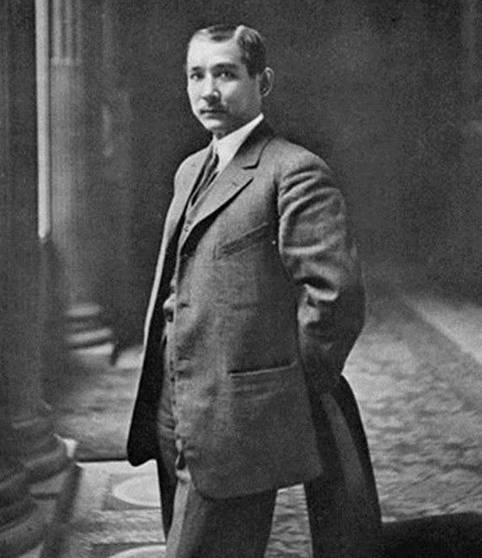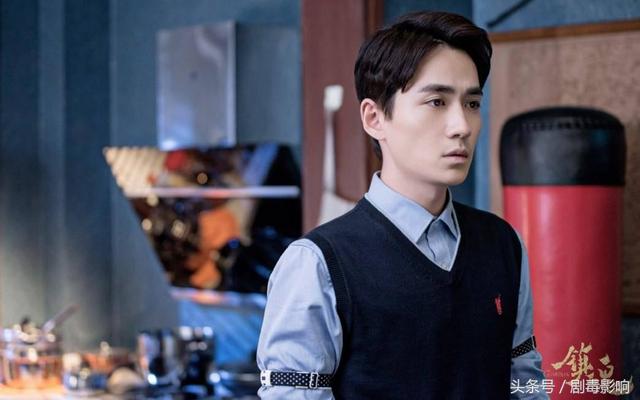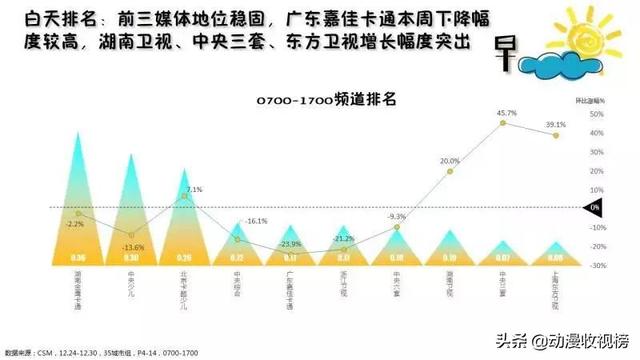芝加哥大学大卫·鲁宾斯坦论坛是一个用于讨论和交流知识的空间,旨在促进世界各地的学者、研究人员以及贵宾们的参与和互动。论坛位于芝加哥大道乐园(Midway Plaisance)的显著位置,与洛克菲勒纪念教堂相对,可以看见芝加哥市中心、密歇根湖、大学校园以及伍德朗社区的开阔景色。
这座面积为97000平方英尺(约9012平方米)的建筑由Diller Scofidio Renfro设计,包含一座双层裙楼和一座八层高的细长塔楼,将为芝加哥大学提供一个285座的礼堂和目前亟需的多功能会议空间,可用于举办研讨会、座谈会、演讲空间以及其他活动。
The David Rubenstein Forum at the University of Chicago is a space of discourse and intellectual exchange aimed at fostering the engagement of scholars, researchers and dignitaries from around the world. The Forum’s prominent location on Chicago’s Midway Plaisance across from Rockefeller Memorial Chapel offers expansive views of Downtown Chicago and Lake Michigan as well as the University Campus and Woodlawn Community.
Designed by Diller Scofidio Renfro, the 97,000 square-foot building is composed of a two-story base and a slender, eight-story tower that will provide the University with a 285- seat auditorium and much needed multipurpose meeting spaces for workshops, symposia and lectures, among other activities.
▼从论坛望向校园和市中心,Looking Towards Campus and Downtown © Patrik Argast

塔楼由多个“街区”堆叠而成,其会议空间和公共空间提供了多样化的环境:正式或非正式、平静或活跃、集中或分散、目的明确或功能自由。每个“街区”都围绕着一个中央的私人社交休息室布局,营造出一种社区感和身份感。这些街区在垂直方向上层层叠加,在水平方向上则发生扭转,使每个空间都能拥有欣赏芝加哥的独特视角,并最终形成一个同时朝向芝加哥南北两端的体量。
The tower is organized as a stack of neighborhoods with meeting and communal spaces offering diverse environments—formal and informal, calm and animated, focused and diffuse, scheduled and spontaneous. Each neighborhood coalesces around a central private social lounge, creating a sense of community and identity. The neighborhoods are vertically stacked, rotated and oriented to give each space a unique perspective of Chicago, producing a form that faces both the north and south sides of Chicago.
▼西南视角,Looking Southwest © Brett Beyer

该建筑的设计意图是在任何可能的地方为人们创造偶遇的机会,从而增强知识上的交流。大卫·鲁宾斯坦论坛的底部楼层是四通八达且动态的,能够从各个方向上与校园和社区相联系。在上楼的过程中,人们将会从日常的生活场景逐渐进入更有沉思氛围的空间,同时领略到芝加哥与密歇根湖的迷人风景。
The building prompts its varied populations to cross paths with one another, where possible, to enhance intellectual exchange. The lower floors of the David Rubenstein Forum are porous and dynamic with connections to the campus and the community in all directions. As one climbs the building, there is a progressive retreat from the everyday to more contemplative spaces, with dramatic views of Chicago and Lake Michigan.
▼从Woodlawn大街望向建筑,Looking Southeast from Woodlawn Ave © Brett Beyer

主要功能Major Features
论坛结合了多种空间,它们有着不同的用途、尺度和氛围。
首层:连续的水磨石地面将入口广场的“户外大厅”无缝地衔接至建筑内部,将人们引向开放的内部大厅。大厅内设有一个由1英寸黑色结构钢制成的连续表面,在贯穿空间的同时转化为悬臂式的接待台和主楼梯和连桥的护栏。首层还设有一个可容纳100人的半私密餐厅,可以俯瞰树丛和户外活动空间;此外还有一个葡萄酒吧和咖啡厅。
The Forum combines a variety of spaces, both formal and informal, large and small, calm and animated, focused and diffused, scheduled and spontaneous.
Ground Floor: A continuous surface of terrazzo paving seamlessly extends the exterior lobby of the entrance plaza into the entry lobby. Guests are welcomed by an open lobby featuring a continuous surface made of 1” blackened structural steel that winds through the lobby, functioning as a cantilevered reception desk, as well as the guardrails for the lobby grand stair and bridge. The ground floor also features a semi-private dining room that seats 100, overlooking the bosque and outdoor event space; and a wine bar and café.
▼一至四层立面,Looking South at 1-4 Floors © Patrik Argast

大学厅:从首层出发,来宾可以通过Bernard J. DelGiorno主楼梯行至大学厅参与主题活动。大学厅是论坛中面积最大的房间,可供超过600名来宾以类似于剧场的方式就座。
University Room: Departing from the ground floor, guests can walk up the Bernard J. DelGiorno Grand Staircase to make their way to a keynote event in the University Room, the largest room in the facility that seats more than 600 guests theater-style.
▼大学厅夜景,University Room © Brett Beyer

景观:二十棵枫树构成了一个向南面开放的树林,并且与南校区步行街相连。裙楼上方的绿色屋顶和弗里德曼大厅上方的日式庭园提供了芝加哥上空的开阔视野。
Level 3-4, Friedman Hall: The third and fourth floors are home to the 4,000 square-foot Friedman Hall, a 285-seat auditorium that sets lectures and performances against the backdrop of Rockefeller Chapel and the Midway Plaisance. These floors and other neighborhoods are connected by a two-story lounge. The hall is lined in Plexwood, an engineered wood paneling system produced in the Netherlands. The material consists of a birch plywood turned on its end grain. The material, sourced from forests certified for sustainable management, is free of VOC’s used into the production process.
▼弗里德曼大厅,Rubenstein Forum_Photography by Brett Beyer © Brett Beyer

▼大厅内部采用了Plexwood饰面,The hall lined in Plexwood © Brett Beyer



Level 5-7, Kapani Family Foundation and Natalia DeSaix Kapani AB ‘20 Lounge and Standard Meeting RoomsLevel 8 – 9, Peter W. May Boardroom and Elevated Meeting Rooms: Meeting rooms on the eighth and ninth floors feature premium furnishings, finishes and equipment, such as the 1,600 square-foot Peter W. May Boardroom, a tiered meeting space that seats 70.Level 10, City View Room: The 2,000 square-foot City View Room on the 10th floor provides a more formal and focused setting with expansive views toward the campus and surrounding communities as well as Downtown Chicago and Lake Michigan.
▼城市景观厅,City View Room © Patrik Argast

▼5层会议室,5th Floor Meeting Room © Patrik Argast

▼5层会议室视野,5th Floor North Facing Meeting Room © Brett Beyer

▼Peter May会议室,Peter May Boardroom © Patrik Argast

▼标准会议室,Standard Meeting Room © Patrik Argast

景观:二十棵枫树构成了一个向南面开放的树林,并且与南校区步行街相连。裙楼上方的绿色屋顶和弗里德曼大厅上方的日式庭园提供了芝加哥上空的开阔视野。
Landscape: A bosque of twenty maple trees opens to the south, and connects to the University’s Campus South Walk. A green roof above the podium and a Japanese garden above Friedman Hall provide elevated views of Chicago.
▼5-9层立面,可以看见弗里德曼大厅上方的日式庭园,Looking South at 5-9 Floors, with a Japanese garden above Friedman Hall © Brett Beyer

▼餐厅和大学厅立面夜景,Looking North at Dining Room and University Room © Brett Beyer

技术特点Technical Features
可持续性 | Sustainability
该项目获得了LEED金级认证,并建立在1893年大道乐园举办芝加哥世界博览会“园中之城”的丰富历史之上——该博览会首次向世界展示了美国对打造更绿色、更安全、更健康的城市所持有的积极态度。论坛的设计将新的鸟类保护技术融入到玻璃幕墙中(使立面对鸟类可见,但不影响人的视野),以保护大道乐园沿线的密西西比鸟类迁徙路径。
The project is certified LEED Gold, building on the rich history of the Midway Plaisance ‘City within the Park’ 1893 World’s Fair which showcased to the world for the first time a new American optimism for greener, safer, healthier cities. The Forum design integrates new bird safe technology into its glass facade visible to birds but not to humans for the protection of the Mississippi Flyway Zone along the Midway Plaisance.
▼西侧视角,可以俯瞰旁边的大道乐园,Looking West with Midway Plaisance © Brett Beyer

▼玻璃幕墙融入了新的鸟类保护技术,The Forum design integrates new bird safe technology into its glass facade © Brett Beyer

▼整体鸟瞰,Rubenstein Forum – Aerial view © Brett Beyer

项目还采用了绿色屋顶技术,在扩大公园沿线的自然栖息地的同时提高了建筑机械系统的能源性能。最后,所有公共空间和会议室都设有全长度的通高玻璃墙面,以提供尽可能多的自然光和视野,将人们与自然景观联系起来,同时模糊了大道乐园和建筑之间的界限。
The project also utilized green roofing technology to both expand natural habitat areas along the Plaisance as well as improve the energy performance of the building mechanical systems. Lastly, every public space and meeting room has floor to ceiling glass for the entire length of the room to provide maximum amount of natural daylight and views connecting people to the natural landscape, blurring the boundaries between Midway Plaisance and building.
▼所有公共空间和会议室都设有全长度的通高玻璃墙面,Every public space and meeting room has floor to ceiling glass for the entire length of the room © Brett Beyer

结构特征 | Structural Features
错落的塔楼结构是通过一对坚固的钢筋混凝土侧墙而实现的,它们从建筑的核心部分向外悬挑40英尺(12.192米),是芝加哥迄今最长的混凝土结构悬挑之一。后张楼板以最小的结构深度跨越在侧墙之间,带来无阻碍的校园和城市视野,同时确保楼板能够达到玻璃幕墙的严格性能要求。屋顶结构采用了跨度超过100英尺(30.48米)的钢制桁架,并由悬臂混凝土横梁支撑,从而实现了大学厅所需的可供600人集会的无柱空间。
The staggered tower structure is achieved with a robust pair of reinforced concrete side walls, which cantilever up to 40 feet from the building’s core, among the longest concrete structure cantilevers present in Chicago. Post-tensioned slabs span between the side walls with minimal structural depth, yielding unobstructed views of the campus and city, all while ensuring that the slabs met the stringent performance requirements of the glass facade. To create the column-free space required for the University Room, a 600 person assembly space, the roof structure was constructed with steel trusses that span over 100 feet which are supported with cantilevered concrete beams.
▼一对钢筋混凝土侧墙从建筑的核心部分向外悬超过12米A pair of concrete side walls cantilever up to 40 feet from the building’s core © Patrik Argast

立面系统 | Façade Systems
幕墙系统的设计旨在提供校园和城市的无障碍视野。为了尽可能地减少室内与立面之间的过渡感,幕墙的所有位置都设置了底座支撑。幕墙由钢筋、成组的铝板和高性能的隔热玻璃单元组成,具有低辐射涂层和防止鸟类碰撞的功能。雨幕的切面设计通过铝复合板和锌板实现。之所以选择锌作为主要材料,是因为其自然老化的过程、反射光线的方式以及灵活的性质,能够使建筑独特的几何感得到进一步突显。
The curtain wall system has been designed and engineered to provide unobstructed views towards the campus and the city. To minimize the transition between interior finishes and facade the curtain wall has been base supported at all locations. It consists of steel reinforced, unitized aluminum panels and high performance insulating glass units featuring low-e coatings as well as bird collision avoidance measures. The faceted design of the rainscreen has been achieved with aluminum composite panels and zinc, chosen as the primary material for its natural aging process, the way it reflects light and its flexibility which allowed for the building’s characteristic geometry.
▼夜间立面,Looking North at Dusk © Brett Beyer

▼整体鸟瞰,Rubenstein Forum – Aerial view © Brett Beyer

Location: 1201 E.60th Street, Chicago, IL 60637Owner: University of ChicagoArchitects: Diller Scofidio Renfro, Design Architect/ Architect of RecordBrininstool Lynch, Associate ArchitectMilestones:2015 A team led by Diller Scofidio Renfro is commissioned.2018 The project begins construction in July 2018.2019 The building’s structure is completed.2020 Construction is completed. The David Rubenstein Forum opens on September 28, 2020.
structure is completed.2020 Construction is completed. The David Rubenstein Forum opens on September 28, 2020.
pleted.2020 Construction is completed. The David Rubenstein Forum opens on September 28, 2020.
structure is completed.2020 Construction is completed. The David Rubenstein Forum opens on September 28, 2020.
,




